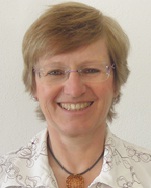
Karin Schütze
CellTool GmbH
Germany
Title: Quality assurance for cell based therapeutics in 2D and 3D products
Biography
Biography: Karin Schütze
Abstract
In modern biomedicine there is an increasing demand for alternative, marker-free and non-destructive cell recognition and characterization methods. Raman Spectroscopy (RS) is a technology increasingly used for biomedical applications like identification of specific cell types. RS reveals detailed information on the metabolomic state of cells and tissues with the advantage that there is no need of labeling procedures. Here we demonstrate the feasibility of RS for quality control of 2D/3D cell based therapeutics exemplified for blood products and engineered human skin samples. In a first application RS was used to monitor erythrocytes and thrombocytes in donor blood over a time period of 30 and 8 days, respectively. Furthermore, Raman spectra were taken to identify and analyze fibroblasts, keratinocytes and melanocytes in a 3D human skin graft model. Raman Spectroscopy enabled quality control of blood products by allowing discrimination between young and old erythrocyte and thrombocyte samples. Thereby, differences found amongst the fresh and older samples were mainly associated with cells death. In 3D skin model it was possible to discriminate between different cell types and determine their allocation, also in a penetration depth up to 200µm, using RS. These two examples show that RS is a photonic marker for gentle yet highly specific detection and analysis of cells in biomedical products. It provides information about the entire metabolome of single cells even in a matrix setup with a depth of 200µm. Most importantly, RS can be used for quality assessment of cell cultures or engineered tissue without impairing cell viability.
